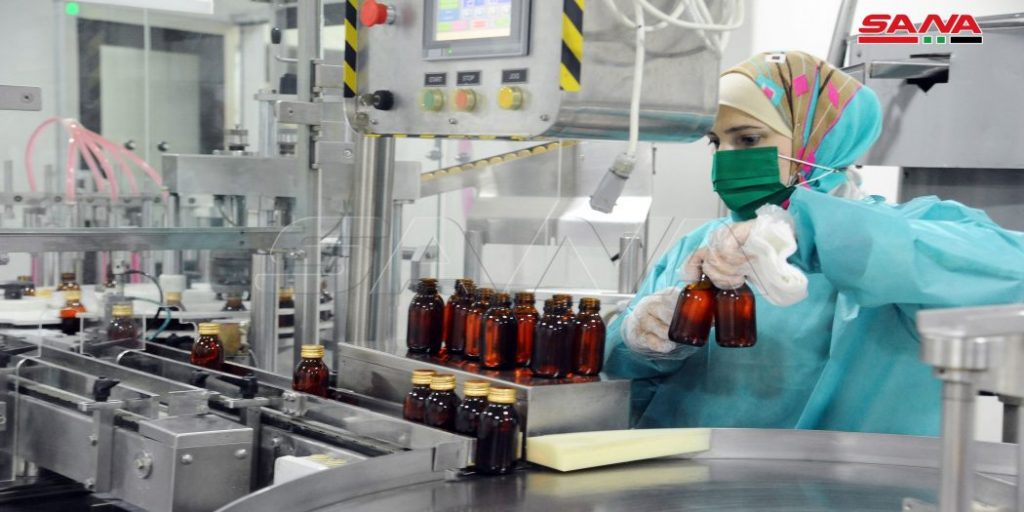At Pharmacy number 22, Nada (an alias) accepted her fate and realized that she would not find Ogmacil 1000 mg, a medication prescribed to her mother. As she left the pharmacy downhearted, the pharmacist surprised her with these words: “Will you pay for us to provide the medicine?”
According to Nada, she was very surprised at first; she certainly didn’t intend to accept any charity from the pharmacy. She shared what’s on her mind with the pharmacist, for him to then tell her that he didn’t mean it that way. Instead, he meant that he could secure the medicine if she is willing to pay three times its price!
Under dire necessity, Nada surrendered and agreed to pay. The pharmacist proceeded to bring the box of medicine from the back room of the pharmacy and sell it at the price of 8500 Syrian pounds per box. The box’s official price does not exceed 2950 Syrian pounds.
Many pharmaceutical products are missing nowadays in Syria, and are only available to those who pay more. This is a new attempt by pharmaceutical companies to force the government of the Syrian regime to raise the price of medicine. It is clear that the regime is unable to oblige pharmaceutical companies to abide by official pricing. This is of course accompanied by some corruption and tacit cooperation with those companies at the expense of the “steadfast” citizen, as the Syrian regime likes to name it.
We’re innocent
Abdul Razzaq (alias) one of the pharmacists in the capital Damascus, said that the problem of raising the price of medicine is not the responsibility of the pharmacist. He then added to Etihad Media: “Laboratories and pharmaceutical companies barely distribute the medicine to us. For example, they give us a box or two of one of the types at the official price, and they tell us if you want more you should buy it at a higher price because it’s no longer profitable.”
“I have to buy the necessary products at a higher price to meet the needs of the customers. I have to choose between buying the medicine at a price that is often about three times higher than the official price, or I have to apologize to the customers,” he said.
Read Also: Pharmaceutical Industry in Syria Covers 90 Percent of Local Demand
But Abdul Razzaq recently stopped buying medicines at the free price and is only buying what the factories and pharmaceutical companies give him at the official price, due to an incident that almost cost him his life. He tells us: “I was about to close the pharmacy one evening last October when a young man entered and asked me about some kind of antibiotic medicine used for children. When I told him that the medicine could be provided if he paid several thousand pounds, we had a small dispute and I asked him to leave the pharmacy. He started insulting me and beating me and then he took out a gun. That’s when I gave him the medicine. He took it and left.”
Smuggling to Lebanon and Iraq
Pharmaceutical factories and companies have not stopped producing, according to a source from the secret, but more than 80 percent of the medicine produced is smuggled into Iraq and more recently to Lebanon. It is sold at prices several times higher than inside Syria.
The source confirms that the smuggling operation takes place in front of the eyes of regulators, including customs, in exchange for a share taken by these soldiers to facilitate the passage of contraband drugs.
Lebanon’s markets have been a great opportunity for pharmaceutical companies, as Lebanon is witnessing great distress and is suffering the loss of many pharmaceutical items. In turn, smuggling into Lebanon is easier than smuggling into Iraq.
This article was translated and edited by The Syrian Observer. The Syrian Observer has not verified the content of this story. Responsibility for the information and views set out in this article lies entirely with the author.


